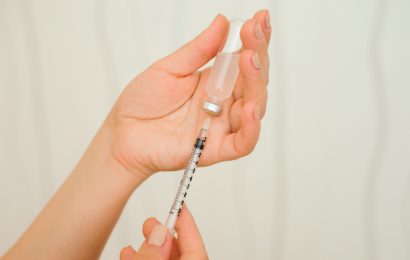New research published in the journal Nature Communications indicates that in people with obesity, the immune system responds to elements of bacteria that “leak” through the intestine into the bloodstream and cause inflammation. The inflammation, in turn, can drive insulin resistance, which ups the risk for type 2 diabetes.
To get cutting-edge diabetes news, strategies for blood glucose management, nutrition tips, healthy recipes, and more delivered straight to your inbox, sign up for our free newsletter!
Researcher Dan Winer, MD, FRCPC, and colleagues at Toronto General Hospital Research Institute and the Department of Pathology at University Health Network discovered that in obesity, there are lower amounts of a type of B cell (a type of white blood cell) in the gut that make an antibody (a substance that fights invaders in the body) called IgA. IgA helps neutralize dangerous bacteria that thrive in certain situations, such as when a fatty diet is eaten.
In experiments, the team found that in those with IgA deficiency, blood glucose levels worsened when a high-fat diet was eaten. When the gut bacteria from those with the IgA deficiency were transplanted into subjects with no gut bacteria, the impaired glucose levels were transferred as well, showing that IgA is involved in regulating the amount of bad bacteria in the gut. The team also discovered increased levels of IgA in the stool of patient who had recently had bariatric surgery, demonstrating the role of IgA in the gut immune system in people with obesity.
“If we can boost these IgA B cells or their products, then we may be able to control the type of bacteria in the gut,” notes Winer. “Especially the ones that are more likely to be linked to inflammation and ultimately insulin resistance. Going forward, this work could form the basis for new gut immune biomarkers or therapies for obesity and its complications, like insulin resistance and type 2 diabetes.”
Want to learn more about insulin resistance? Read “Insulin Resistance: What You Need to Know” and “Increasing Insulin Sensitivity.”
Diane Fennell
Senior Digital Editor for DiabetesSelfManagement.com, Fennell has 16 years’ experience specializing in diabetes and related health conditions. Based in New York City, she has a degree from Columbia University.






